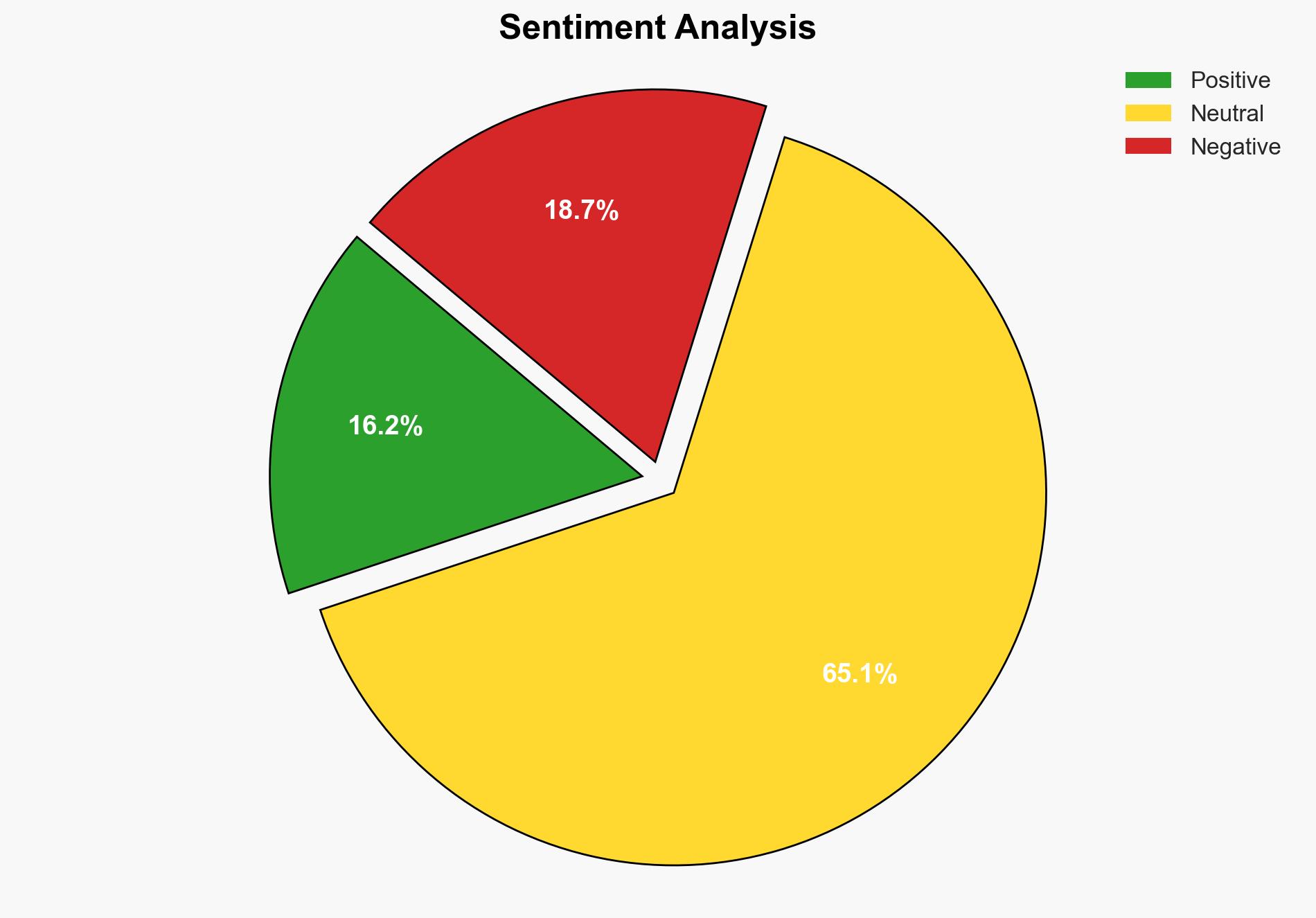Haitian immigrants grapple with uncertainty as TPS end date looms – NBC News
Published on: 2025-03-08
Intelligence Report: Haitian immigrants grapple with uncertainty as TPS end date looms – NBC News
1. BLUF (Bottom Line Up Front)
The impending end of Temporary Protected Status (TPS) for Haitian immigrants in the United States poses significant challenges. Thousands face potential deportation amidst Haiti’s ongoing political instability, gang violence, and economic hardship. The decision to terminate TPS has created uncertainty and fear within Haitian communities, particularly in areas like Brooklyn, New York. Immediate strategic actions are required to address the humanitarian and legal implications of this policy change.
2. Detailed Analysis
The following structured analytic techniques have been applied for this analysis:
SWOT Analysis
Strengths: Established Haitian communities in the U.S. provide support networks and resources.
Weaknesses: Legal and financial burdens on TPS holders, including high tuition fees and renewal costs.
Opportunities: Potential for policy advocacy to extend or modify TPS provisions.
Threats: Increased risk of deportation and family separation; exacerbation of instability in Haiti.
Cross-Impact Matrix
The termination of TPS could lead to increased migration pressures on neighboring countries and strain U.S.-Haiti relations. It may also impact U.S. domestic policies on immigration and humanitarian aid.
Scenario Generation
Best-case scenario: Extension of TPS or legislative action to provide a pathway to permanent residency.
Worst-case scenario: Mass deportations leading to humanitarian crises in Haiti and increased regional instability.
Most likely scenario: Legal battles and advocacy efforts delay immediate deportations, but uncertainty persists.
3. Implications and Strategic Risks
The termination of TPS for Haitian immigrants poses significant risks to national security and regional stability. Potential mass deportations could destabilize Haiti further, increasing migration pressures and humanitarian needs. Economically, the loss of Haitian workers could impact sectors reliant on immigrant labor. Socially, the threat of deportation may lead to increased fear and distrust within immigrant communities.
4. Recommendations and Outlook
Recommendations:
- Advocate for legislative measures to extend TPS or provide alternative legal pathways for affected individuals.
- Enhance support services for Haitian communities, including legal assistance and mental health resources.
- Strengthen diplomatic efforts with Haiti to address root causes of instability and violence.
Outlook:
Best-case: Policy changes lead to extended protections and improved conditions in Haiti.
Worst-case: Immediate deportations exacerbate humanitarian crises and regional tensions.
Most likely: Continued legal and advocacy efforts provide temporary relief but maintain uncertainty.
5. Key Individuals and Entities
The report mentions significant individuals such as Geslain Luma, Abigail Desravine, and Samuel Nicolas. These individuals represent the broader community affected by the TPS decision and provide personal insights into the challenges faced by Haitian immigrants.





